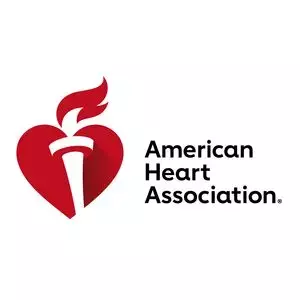- Home
- Medical news & Guidelines
- Anesthesiology
- Cardiology and CTVS
- Critical Care
- Dentistry
- Dermatology
- Diabetes and Endocrinology
- ENT
- Gastroenterology
- Medicine
- Nephrology
- Neurology
- Obstretics-Gynaecology
- Oncology
- Ophthalmology
- Orthopaedics
- Pediatrics-Neonatology
- Psychiatry
- Pulmonology
- Radiology
- Surgery
- Urology
- Laboratory Medicine
- Diet
- Nursing
- Paramedical
- Physiotherapy
- Health news
- Fact Check
- Bone Health Fact Check
- Brain Health Fact Check
- Cancer Related Fact Check
- Child Care Fact Check
- Dental and oral health fact check
- Diabetes and metabolic health fact check
- Diet and Nutrition Fact Check
- Eye and ENT Care Fact Check
- Fitness fact check
- Gut health fact check
- Heart health fact check
- Kidney health fact check
- Medical education fact check
- Men's health fact check
- Respiratory fact check
- Skin and hair care fact check
- Vaccine and Immunization fact check
- Women's health fact check
- AYUSH
- State News
- Andaman and Nicobar Islands
- Andhra Pradesh
- Arunachal Pradesh
- Assam
- Bihar
- Chandigarh
- Chattisgarh
- Dadra and Nagar Haveli
- Daman and Diu
- Delhi
- Goa
- Gujarat
- Haryana
- Himachal Pradesh
- Jammu & Kashmir
- Jharkhand
- Karnataka
- Kerala
- Ladakh
- Lakshadweep
- Madhya Pradesh
- Maharashtra
- Manipur
- Meghalaya
- Mizoram
- Nagaland
- Odisha
- Puducherry
- Punjab
- Rajasthan
- Sikkim
- Tamil Nadu
- Telangana
- Tripura
- Uttar Pradesh
- Uttrakhand
- West Bengal
- Medical Education
- Industry
Use HCQS and azithromycin cautiously in COVID-19 patients with CVD: AHA

DALLAS, April 8, 2020 – The global impact of COVID-19 continues to surge, and every day, the scientific community learns more about the impact and interaction of cardiovascular diseases with COVID-19. Together, the American Heart Association (AHA), the American College of Cardiology (ACC) and the Heart Rhythm Society (HRS) jointly published this new guidance, "Considerations for Drug Interactions on QTc in Exploratory COVID-19 (Coronavirus Disease 19) Treatment," to detail critical cardiovascular considerations in the use of hydroxychloroquine and azithromycin for the treatment of COVID-19.
This guidance is published in Circulation, the flagship journal of the American Heart Association; JACC, the Journal of the American College of Cardiology; and Heart Rhythm Journal, the official journal of the Heart Rhythm Society.
The antimalarial medication hydroxychloroquine and the antibiotic azithromycin are currently gaining attention as potential treatments for COVID-19, and each has potentially serious implications for people with existing cardiovascular disease. Complications include severe electrical irregularities in the heart such as arrhythmia, polymorphic ventricular tachycardia (including Torsade de Pointes) and long QT syndrome, and increased risk of sudden death. The effect on QT or arrhythmia of these two medications combined has not been studied.
The AHA, the ACC and the HRS guidance for health care professionals include additional mechanisms to reduce the risk of arrhythmias. Steps outlined:
- Electrocardiographic/QT interval monitoring
- Withhold hydroxychloroquine and azithromycin in patients with baseline QT prolongation (e.g. QTc ≥500 msec) or with known congenital long QT syndrome;
- Monitor cardiac rhythm and QT interval; withdrawal of hydroxychloroquine and azithromycin if QTc exceeds a present threshold of 500 msec;
- In patients critically ill with COVID-19 infection, frequent caregiver contact may need to be minimized, so optimal electrocardiographic interval and rhythm monitoring may not be possible;
- Correction of hypokalemia >4mEq/L and hypomagnesemia >2mg/dL; and
- Avoid other QTc prolonging agents whenever feasible.
The statement also includes a table rating potential adverse cardiac events of medications currently being repurposed for COVID-19 treatment, such as chloroquine and lopinavir/ritonavir (antimalarial and antiviral agents, respectively).
"The urgency of COVID-19 must not diminish the scientific rigor with which we approach COVID-19 treatment. While these medications may work against COVID-19 individually or in combination, we recommend caution with these medications for patients with existing cardiovascular disease," said Robert A. Harrington, M.D., FAHA, president of the American Heart Association, Arthur L. Bloomfield Professor of Medicine and chair of the department of medicine at Stanford University.
"We are united in our mission to achieve optimal, quality care for our patients, and we must continue to be vigilant in assessing the potential complications of all medications during this crisis," stated Athena Poppas, M.D., president of the American College of Cardiology, professor of medicine at Brown University and chief of cardiology and director of the Lifespan Cardiovascular Institute at Rhode Island, the Miriam and Newport hospitals in Providence, Rhode Island.
"Given the potential for increased risks related to combinations of medications that prolong the QT interval, we urge careful consideration to ensure patients with cardiovascular disease or others at increased risk can be monitored appropriately," stated Andrea M. Russo, M.D., president of the Heart Rhythm Society, director of Electrophysiology and Arrhythmia Services at Cooper University Hospital, director of the CCEP Fellowship Program, and professor of medicine at Cooper Medical School of Rowan University in Camden, New Jersey.
The statement is also co-authored by Dan M. Roden, M.D.C.M., interim division chief of cardiovascular medicine, senior vice president for personalized medicine, faculty of the clinical cardiac electrophysiology program, Sam Clark Chair in Experimental Therapeutics, professor of pharmacology and professor of biomedical informatics at Vanderbilt University in Nashville, Tennessee.
For further reference log on to acc.org.
Dr Kamal Kant Kohli-MBBS, DTCD- a chest specialist with more than 30 years of practice and a flair for writing clinical articles, Dr Kamal Kant Kohli joined Medical Dialogues as a Chief Editor of Medical News. Besides writing articles, as an editor, he proofreads and verifies all the medical content published on Medical Dialogues including those coming from journals, studies,medical conferences,guidelines etc. Email: drkohli@medicaldialogues.in. Contact no. 011-43720751


